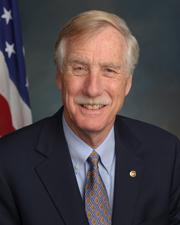0
0
0
Voter Choice Act
12/15/2023, 4:09 PM
Summary of Bill S 3313
The Voter Choice Act, also known as Bill 118 s 3313, is a piece of legislation currently being considered by the US Congress. The main goal of this bill is to expand voter choice and increase access to the ballot for all eligible voters.
One of the key provisions of the Voter Choice Act is the implementation of ranked-choice voting in federal elections. Ranked-choice voting allows voters to rank candidates in order of preference, rather than just selecting one candidate. This system ensures that the candidate with the broadest support among voters is ultimately elected, even if they are not the first choice of a majority of voters.
Additionally, the Voter Choice Act aims to increase access to the ballot by implementing measures such as automatic voter registration, early voting, and same-day voter registration. These provisions are designed to make it easier for all eligible voters to participate in the electoral process and have their voices heard. Overall, the Voter Choice Act is a comprehensive piece of legislation that seeks to improve the democratic process by expanding voter choice and increasing access to the ballot. Supporters of the bill argue that these measures will lead to a more representative and inclusive democracy, while opponents raise concerns about the potential logistical challenges of implementing ranked-choice voting and other provisions.
One of the key provisions of the Voter Choice Act is the implementation of ranked-choice voting in federal elections. Ranked-choice voting allows voters to rank candidates in order of preference, rather than just selecting one candidate. This system ensures that the candidate with the broadest support among voters is ultimately elected, even if they are not the first choice of a majority of voters.
Additionally, the Voter Choice Act aims to increase access to the ballot by implementing measures such as automatic voter registration, early voting, and same-day voter registration. These provisions are designed to make it easier for all eligible voters to participate in the electoral process and have their voices heard. Overall, the Voter Choice Act is a comprehensive piece of legislation that seeks to improve the democratic process by expanding voter choice and increasing access to the ballot. Supporters of the bill argue that these measures will lead to a more representative and inclusive democracy, while opponents raise concerns about the potential logistical challenges of implementing ranked-choice voting and other provisions.
Read the Full Bill
Current Status of Bill S 3313
Bill S 3313 is currently in the status of Bill Introduced since November 15, 2023. Bill S 3313 was introduced during Congress 118 and was introduced to the Senate on November 15, 2023. Bill S 3313's most recent activity was Read twice and referred to the Committee on Rules and Administration. as of November 15, 2023
Bipartisan Support of Bill S 3313
Total Number of Sponsors
1Democrat Sponsors
1Republican Sponsors
0Unaffiliated Sponsors
0Total Number of Cosponsors
2Democrat Cosponsors
0Republican Cosponsors
0Unaffiliated Cosponsors
2Policy Area and Potential Impact of Bill S 3313
Primary Policy Focus
Government Operations and PoliticsAlternate Title(s) of Bill S 3313
Voter Choice Act
Voter Choice Act
A bill to amend the Help America Vote Act of 2002 to support State and local governments making a transition to ranked choice voting.
Comments
Sponsors and Cosponsors of S 3313
Latest Bills
Dismissing the election contest relating to the office of Representative from the Twenty-eighth Congressional District of Texas.
Bill HRES 309December 12, 2025
Dismissing the election contest relating to the office of Representative from the Fourteenth Congressional District of Florida.
Bill HRES 308December 12, 2025
Dismissing the election contest relating to the office of Representative from the Thirtieth Congressional District of Texas.
Bill HRES 311December 12, 2025
Dismissing the election contest relating to the office of Representative from the Fourteenth Congressional District of Florida.
Bill HRES 312December 12, 2025
Dismissing the election contest relating to the office of Representative from the at-large Congressional District of Alaska.
Bill HRES 310December 12, 2025
Snow Water Supply Forecasting Reauthorization Act of 2025
Bill HR 3857December 12, 2025
ARCA Act of 2025
Bill S 1591December 12, 2025
Ensuring VetSuccess On Campus Act of 2025
Bill S 610December 12, 2025
Halting Ownership and Non-Ethical Stock Transactions (HONEST) Act
Bill S 1498December 12, 2025
Electric Supply Chain Act
Bill HR 3638December 12, 2025

